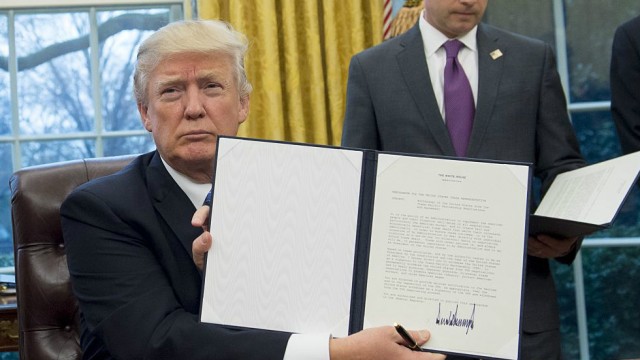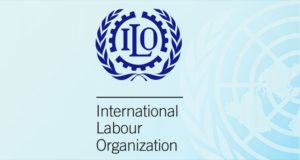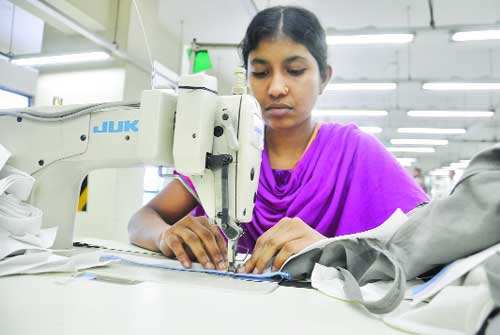Published in The Daily Star on Wednesday, 25 January 2017
An opportunity for Bangladesh
Economists, RMG exporters see an end to uneven trade preferences against Bangladesh as Trump administration abandons TPP deal
Refayet Ullah Mirdha

Economists and garment exporters see the abandonment of 12-nation mega trade deal Trans-Pacific Partnership (TPP) as an immense opportunity for Bangladesh.
With the scrapping of the deal, they believe, there would be no future uneven trade preferences against Bangladesh in the US market.
Vietnam, a signatory of the TPP, is a major competitor of Bangladesh when it comes to exporting garments to the US market. As per the TPP, Vietnam was supposed to enjoy zero-duty benefits. But now, things might be quite different, they said.
“The TPP was a matter of worry for us as Vietnam was a member of this trade bloc. So, it is good news for us that the deal has been scrapped,” said Mustafizur Rahman, executive director of the Centre for Policy Dialogue (CPD), a private think tank.
The CPD chief, however, said Bangladesh will have to remain “cautious” as there is a possibility that the US would sign bilateral deals with other countries for importing goods at a cheaper rate.
The US might sign the bilateral trade deal with Vietnam as well, he said.
“With the scrapping of the TPP, we also came out from an unusual competition in garment trade in the US market. Vietnam will not enjoy duty benefits anymore,” said Siddiqur Rahman, president of Bangladesh Garment Manufacturers and Exporters Association (BGMEA).
“Bangladesh and Vietnam produce similar kinds of garment items and compete in the same markets. So, the abandonment of the TPP is quite good for us,” he said.
The US is the single largest export destination for Bangladesh.
Bangladesh exports products worth nearly $6 billion to the US market a year. Of the total export, 95 percent include apparel items.
“I hope the new [US] government will also return the GSP [Generalised System of Preferences] facilities to Bangladesh and withdraw the duty on export of garment items to the US,” Siddiqur said.
However, Ahsan H Mansur, executive director of Policy Research Institute, another private think tank, is not that optimistic about Bangladesh’s benefits following the TPP abandonment.
“I have every doubt that Bangladesh would be benefited from the TPP deal cancellation.
“The scrapping of the TPP does not mean that the US will import goods from other least developed or developing countries. So, we have nothing to rejoice,” Mansur said.
“The TPP was not implemented and now it has been abandoned. So basically, it does not make any difference,” he said.
The US importers have to pay 15.62 percent duty on import of garment items from Bangladesh, while the duty for Vietnam is just 8.38 percent.
Among the top 10 garment exporters to the US, five countries experienced negative growth over the last 11 months (January-November 2016), according to data from the Office of Textiles and Apparel of the US Department of Commerce.
Even in such a negative growth trend, garment export from Vietnam to the US soared just before final implementation of this mega trade deal.
Garment export to the US from Vietnam registered 2.18 percent year-on-year growth to $ 4.03 billion in the last 11 months. During this time, Bangladesh’s export to the US declined by 0.04 percent year-on-year to $ 2.03 billion.
US President Trump upended America’s traditional, bipartisan trade policy on Monday as he formally abandoned the ambitious TPP brokered by his predecessor, reports The New York Times.
With the stroke of a pen on his first full weekday in office, Trump signaled that he plans to follow through on promises to take a more aggressive stance against foreign competitors as part of his “America First” approach, the report said, adding, in doing so, he demonstrated that he would not follow old rules, effectively discarding longstanding Republican orthodoxy that expanding global trade was good for the world and America — and that the United States should help write the rules of international commerce.
However, Michael B Froman, the trade representative who negotiated the pact for Obama, said in an interview, “There’s no doubt that this action will be seen as a huge, huge win for China”.
“For the Trump administration, after all this talk about being tough on China, for their first action to basically hand the keys to China and say we’re withdrawing from our leadership position in this region is geostrategically damaging,” he said, reports The New York Times.
 CPD RMG Study Stitching a better future for Bangladesh
CPD RMG Study Stitching a better future for Bangladesh



